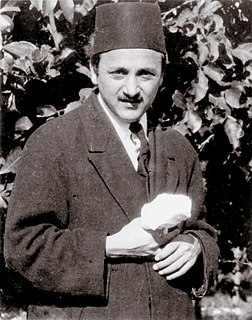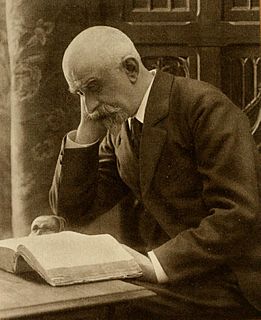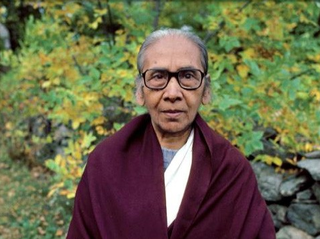A Quote by Samuel Johnson
The natural flights of the human mind are not from pleasure to pleasure, but from hope to hope.
Related Quotes
When you're comfortable and secure, it's not enough. The mind doesn't stop there because it has to continue to focus itself as this body, so it moves to pleasure. And pleasure really is a non-existent thing. When we're experiencing pleasure, we're trying to hold onto it as it leaves, so it really isn't pleasure. Pleasure is pain because we're grasping.
And then the spirit brings hope, hope in the strictest Christian sense, hope which is hoping against hope. For an immediate hope exists in every person; it may be more powerfully alive in one person than in another; but in death every hope of this kind dies and turns into hopelessness. Into this night of hopelessness (it is death that we are describing) comes the life-giving spirit and brings hope, the hope of eternity. It is against hope, for there was no longer any hope for that merely natural hope; this hope is therefore a hope contrary to hope.
His contempt for humanity grew fiercer, and at last he came to realize that the world is made up mostly of fools and scoundrels. It became perfectly clear to him that he could entertain no hope of finding in someone else the same aspirations and antipathies; no hope of linking up with a mind which, like his own, took pleasure in a life of studious decrepitude; no hope of associating an intelligence as sharp and wayward as his own with any author or scholar.
Hope. People want hope. We crave hope. We long for hope. Hope has been present since the very beginning. And almost in the worst situations of human history, you often find the greatest amount of hope. The very nature of the situation, the way stepped-on people created within them even more hope than when things were going fine. Hope has always been around.
At the heart of our desires is eternal happiness without the slightest hint of misery. You could say that we are pleasure seekers; however, seeking pleasure from the objects of our five senses produces fleeting moments of pleasure whereas, pleasure of one's self, a soul, is eternal and ever-increasing pleasure.
But I must explain to you how all this mistaken idea of denouncing pleasure and praising pain was born and I will give you a complete account of the system, and expound the actual teachings of the great explorer of the truth, the master-builder of human happiness. No one rejects, dislikes, or avoids pleasure itself, because it is pleasure, but because those who do not know how to pursue pleasure rationally encounter consequences that are extremely painful.
Our greatest hope is for the experience of joy, and often we are not as smart as we think we are when it comes to predicting what would bring us that joy. . . Hope that is attached to a particular outcome is looking for pleasure but fishing for pain, because attachment itself is a source of pain. It is best to hope for an experience of life in all its fullness-a life that can embrace both joy and sorrow, and will still be at peace.
It is important to distinguish between sense-pleasure and sense-desire. There is nothing wrong with sense-pleasure. Pleasure and pain are part of our human experience. Sense-desire, on the other hand, is the grasping at pleasure or the avoidance of pain. This is what creates suffering-grasping and avoidance.




































